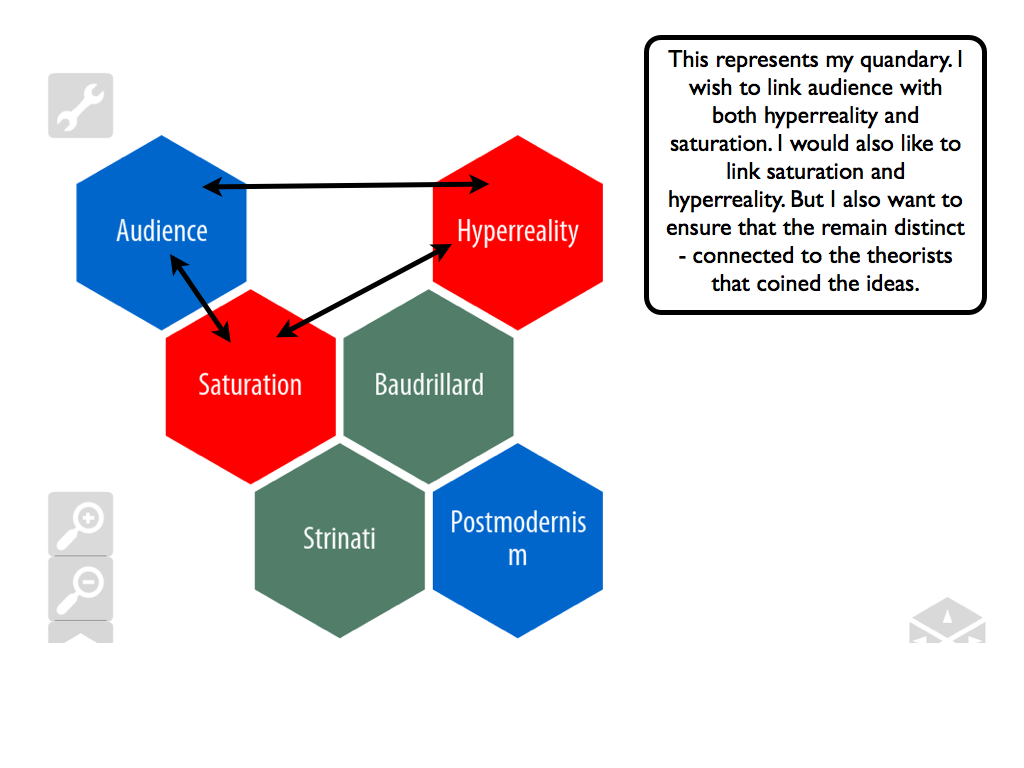Yesterday I enrolled and began participating in MOOC MOOC a week long, Massive Open Online Course about Massive Open Online Courses.
This is the first MOOC that I have participated in although I have been following the development and growth of the MOOC phenomenon for some time; aided by blog posts and tweets from the likes of Stephen Downes, George Siemens, Dave Cormier, Jim Groom and Audrey Watters. My interest in such courses is obvious… just a short perusal of my blog will tell you that I have a vested interest in e-Learning, independent learning and learning pedagogies. I am currently writing up my research proposal as part of the Masters in Education I am undertaking. I am seeking to answer the following question:
To what extent can virtual courses support the development of independent learning beyond ‘real time’ curriculum delivery?
I hope that spending the week participating in MOOC MOOC will provide additional ideas and lines of enquiry, as I continue to develop and refine my thinking around both online learning and learner independence. I am also interested in the role such courses can play within the education landscape and the challenge that they can pose to traditional-systematised models of education. I hold strong beliefs about learner independence and feel that we are currently reaching a point where learning has the potential to be more democratised and available to learners, free from economic and geographical constraints. Moreover, I see potential in MOOCs to be a piece of the puzzle in enabling learners to be autonomous; self-managing their learning pathway. I’m not sure how far this view reflects others’ thinking and that is something I hope to discern over the course of the week.
I am also interested to see how a MOOC is/can be different from any other online course? What is the balance/relationship between pedagogy and technology? What is most important within the ‘Massive Open Online Course’? Scale? Openness? Online? Or something else? I have many questions and I don’t expect to necessarily come out the other end with answers but I do expect my thinking to have moved forwards.
Day One: Orientation
What follows here is a collection of my thoughts after the first day of MOOC MOOC
Having enrolled, participants were invited to edit their profile, sort notification preferences and introduce themselves, all within the confines of the Canvas LMS. While I understand the decision to use such a platform to structure the course, it immediately raised questions. Canvas certainly looks nice but is no way different to Blackboard or Moodle in its infrastructure and approach. Does the use of such platforms limit MOOCs? Are our perceptions of what a MOOC is/can be being defined by previous experiences of online courses that have and continue to be delivered within such platforms? How is MOOC MOOC different from any other online course? I don’t have an answer yet but as with all learning, I believe it’s imperative to look beyond the technology. If we do that then, what we are left with is a discussion and a selection of articles to read. Not particularly ground breaking but then it is only day one. I tried to engage with the forum discussion, introducing myself and responding to one/two other people’s posts. However, I found myself becoming irked by the platform; the threaded structure and limited functionality made the process cumbersome. Furthermore, given that a Twitter social was scheduled for 6pm, I have to ask what the point of using the forum was? I am reminded of a discussion I had a while ago about the value of distribution and multiple platforms. However, I remain unconvinced. For each activity I feel it is best to pick one medium (hopefully the one that is best suited to the task).
Finding myself a little underwhelmed, I decided to spend some time reading. A number of articles were posted, several of which I had not encountered before and others that I had. In this process, what a MOOC is began to reveal itself; not only in terms of varying definitions, which I plan to explore as the course continues, but also in terms of my role as participant/independent learner. Writing this on day two, I have already had a number of discussions on Twitter and via a Google Doc about the difference between cMOOCs and xMOOCs. There is clearly a history to be understood and a lot of information to be digested however it’s becoming clear that connecting, discussing, and debating is an integral feature of MOOCs. Dave Cormier says as much in the following video.
Now, a day and a half in, I have oriented, declared and sprinted head first into sharing, collaborating and debating with the network. Like I have experienced during my M.Ed studies, and with my own students, it is the dialogue that is most important. Perhaps then, a MOOC is nothing more than a beginning, a platform to jump off of? Each article, each activity a way to evolve thinking and generate further discussion?


